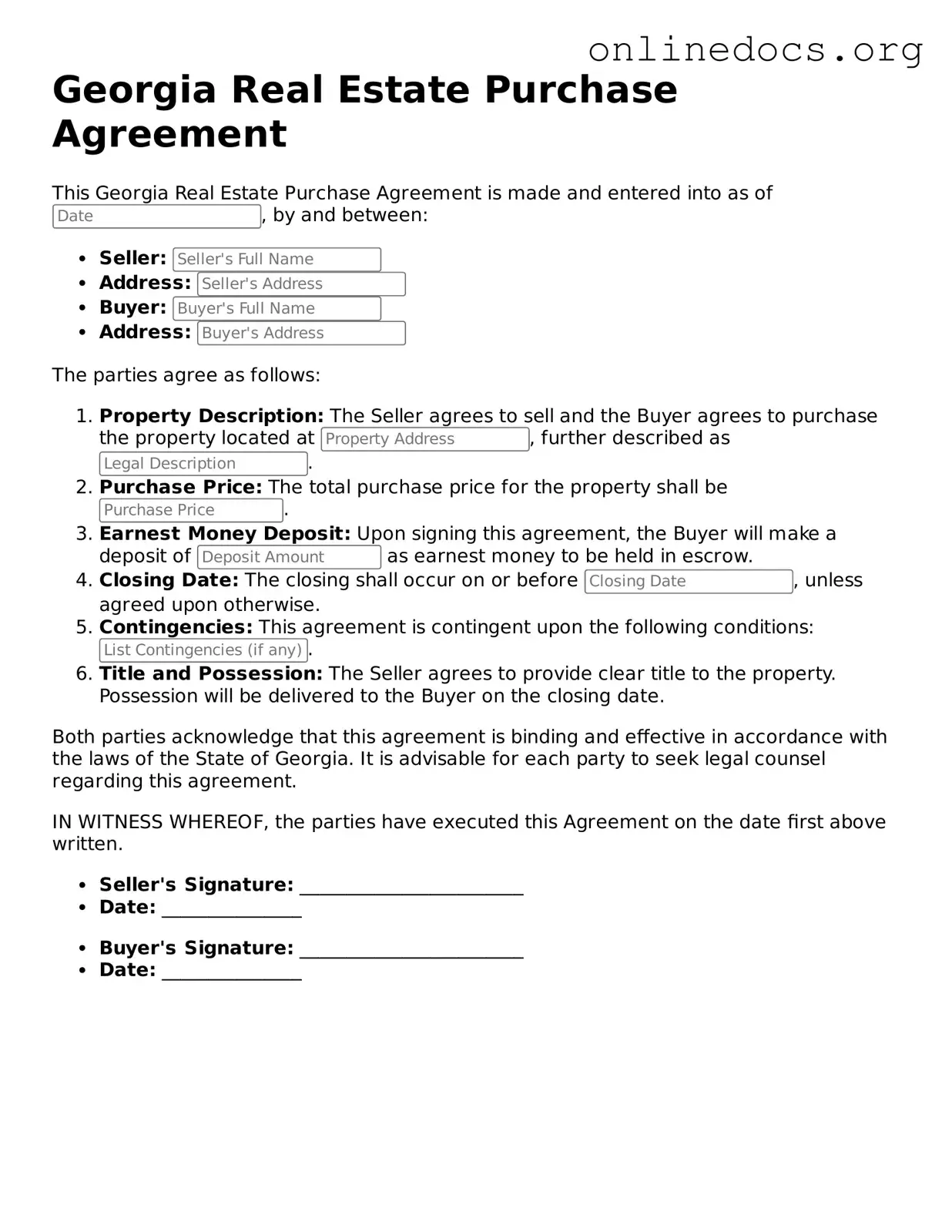The Georgia Real Estate Purchase Agreement form shares similarities with the Residential Purchase Agreement, commonly used in many states. Both documents serve as a formal contract between a buyer and seller, outlining the terms of a property sale. They detail essential elements such as the purchase price, contingencies, and closing date. In essence, both agreements aim to protect the interests of both parties while ensuring that all legal requirements are met during the transaction process.
Another document that resembles the Georgia Real Estate Purchase Agreement is the Commercial Purchase Agreement. While this document is tailored for commercial properties, it functions similarly by establishing the terms of sale between buyers and sellers. Both agreements include provisions for earnest money, inspections, and financing terms. However, the Commercial Purchase Agreement may also address specific zoning laws and business-related contingencies that are not typically present in residential agreements.
The Lease Purchase Agreement is another document that shares key features with the Georgia Real Estate Purchase Agreement. This type of agreement allows a tenant to rent a property with the option to buy it later. Like the purchase agreement, it outlines the purchase price and terms of sale. However, it also includes rental terms and conditions, making it a hybrid between leasing and buying. This document benefits both parties by providing the tenant with time to secure financing while ensuring the seller has a committed buyer.
Understanding the various agreements involved in real estate transactions is essential, especially when dealing with rental situations. For instance, if a landlord needs to evict a tenant, they must utilize the California Notice to Quit form to formally request the tenant to vacate the property. It is important for landlords to be aware of this legal requirement and the appropriate procedures to follow, which can be found at https://californiapdfforms.com/notice-to-quit-form.
In addition, the Option to Purchase Agreement is closely related to the Georgia Real Estate Purchase Agreement. This document grants a potential buyer the right, but not the obligation, to purchase a property within a specified timeframe. While it does not finalize the sale, it sets forth the terms under which the buyer can later execute a purchase agreement. Both documents emphasize the importance of clear terms and conditions to protect the interests of both the buyer and the seller.
The Seller Financing Agreement also bears resemblance to the Georgia Real Estate Purchase Agreement. This document outlines the terms under which the seller finances the purchase for the buyer, rather than involving a traditional lender. Similar to the purchase agreement, it includes details about the purchase price, interest rate, and repayment terms. This arrangement can benefit buyers who may have difficulty obtaining conventional financing, while also providing sellers with a steady income stream.
Lastly, the Counteroffer Form is another document that relates to the Georgia Real Estate Purchase Agreement. When a seller receives an offer that doesn’t fully meet their expectations, they may respond with a counteroffer. This document outlines the revised terms and conditions, which can include changes to the price or contingencies. Like the purchase agreement, it serves to facilitate negotiation and ensure that both parties are on the same page before finalizing the sale.
